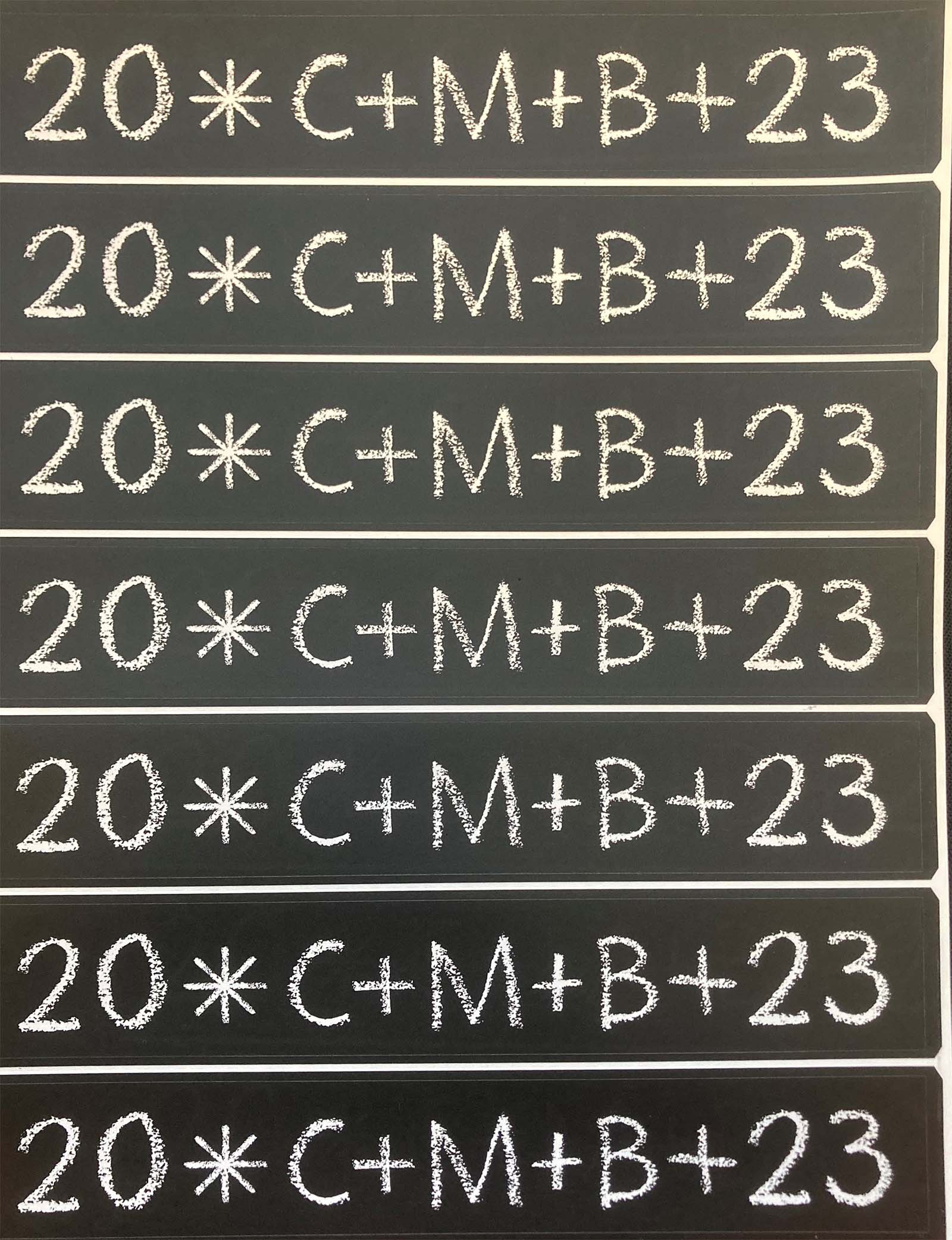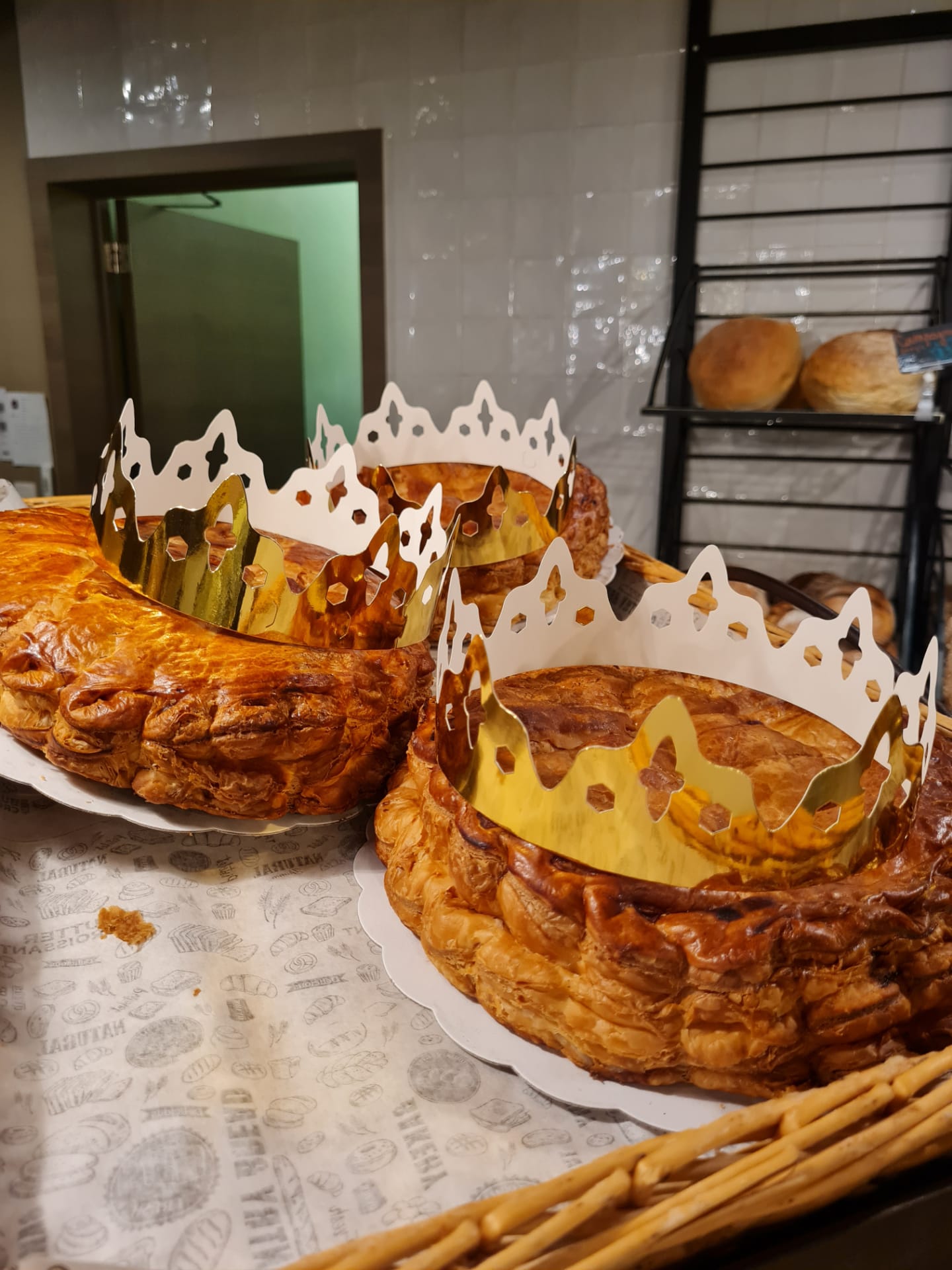
Door post blessings are prepared in advance of the upcoming Three Kings Day event on SHAPE, Belgium, Jan. 4, 2023 (Photo courtesy of Chaplain (Maj.) Bernardino Yebra)
Bits of the Benelux: Story of three kings sparks Benelux-wide celebrations
[Editor’s Note: The following story is the seventh in the series Bits of the Benelux. This series takes a deep dive into the stories, cultures and traditions found throughout Belgium, the Netherlands, and Germany]
USAG BENELUX - BRUNSSUM, Netherlands – Three Kings Day, or the Feast of the Epiphany (“Épiphanie” in French, “Driekoningen” in Dutch and “Heilige Drei Könige” in German), is a Christian religious celebration commemorating the end of the traditional 12 days of Christmas. Observed on Jan. 6, the day celebrates the story of the three kings (also referred to as Magi or wise men) following the Star of Bethlehem to the child, Jesus, seen as the embodiment of God.
While largely observed by Catholics, some Protestants also partake in Three Kings Day traditions. The centuries-old celebration is not a public holiday in Belgium, the Netherlands or the German state of North Rhine-Westphalia, but is still widely recognized throughout the region.

King cakes, or "galettes des rois," are on display at a Walloon bakery during Three Kings Day, Jan. 6, 2022. (U.S. Army photo by Christophe Morel, USAG Benelux Public Affairs)
During Three Kings Day, Families, friends and colleagues often enjoy a specially baked king cake or bread (“galette des rois” in French, “driekoningentaart” in Dutch and “dreikönigskuchen” in German). Sharing the cake is a competition to see who will be named the king or queen of the day by finding the “fève,” or little figurine, inside.
In Belgium, layers of puff pastry are filled with sweet frangipane, or almond cream, and the cake is sold with a crown to be worn by the finder of the hidden fève. The figurine is often a porcelain animal or Disney character - to the delight of participating children. Sometimes uncooked beans are used—two white and one dark—with the finder of the dark bean being crowned king. Epiphany cakes can be found in supermarkets and bakeries.
In the U.S., this Epiphany cake is reminiscent of the Mardi Gras king cake, best known in New Orleans, Louisiana. The carnival season there begins on Jan. 6, when the cake is first served, and runs until Ash Wednesday. Frosted with purple, yellow, and green, this bakery sweet also hides a figurine inside it—often a miniature plastic baby. The finder of the figurine is pronounced to have good luck for the remainder of the year and is also sometimes required to buy the next cake or throw a party.
While the cakes serve as a central tradition in many households, they aren’t the only way Three Kings Day is celebrated.

A photo illustration showing examples of Three Kings Day door post blessings in Stuttgart, Germany. (Courtesy photo) (This image was created by combining three individual photographs.)
In parts of Germany, young children can be seen in Magi costumes singing and walking in village neighborhoods collecting money for charities and writing in chalk the date and letters C + M + B on the door posts of homes. The letters written in chalk historically came from the Latin phrase “Christus mansionem benedicat” which means “Christ bless this house,” but now are more often referred to as the names of the three kings: Caspar, Melchior, and Balthasar.
This tradition is also recognized at Chièvres Air Base and SHAPE, Belgium, where a Catholic priest and Lutheran pastor from Germany and SHAPE Chaplain (Maj.) Bernardino Yebra will conduct door post blessings for offices on both installations on Jan 6, 2023.
In the Netherlands, primary schools commonly host plays or skits about the wise men and their travel to meet the baby Jesus. Children dress up in costumes as the Magi, King Herod, shepherds, Mary, Joseph and even animals to reenact the Bible story.
This year, the JFC Brunssum International Chapel in Brunssum will host a Three Kings Day celebration on Jan. 6, 2023, from 5:30 to 9 p.m. with a potluck dinner and dancing.
Additionally, the city of Maastricht will host a celebratory procession including performers dressed as the three kings and their retinue, live animals and musicians. The parade will march down the streets of Jekerkwartier on Saturday, Jan. 7, 2023, at 5 p.m.
Learn more about Maastricht’s procession
—
This series, Bits of the Benelux, will continue to explore the many cultural traditions in and around the Benelux. Further stories like this on the local traditions, festivals, and events are scheduled to be published monthly, as they occur.
- Read Bits of the Benelux: Giants dance in streets during Ducasse d’Ath
- Read Bits of the Benelux: WWII Liberation remembrance marked by ceremonies, concert
- Read Bits of the Benelux: Celebrating Prince’s Day in the Netherlands
- Read Bits of the Benelux: Germany celebrates reunification during Tag der Deutschen Einheit
- Read Bits of the Benelux: Celebrating the holidays through markets
- Read Bits of the Benelux: Christmas Eve service commemorates WWII Soldiers




